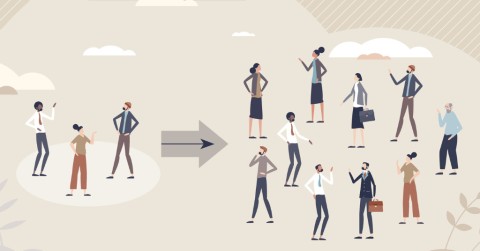Civics Crash Course - Lesson 2.0
As our nation debated ratification of the Constitution in the late eighteenth century, the Anti-Federalists raised concerns about the danger of federal representatives losing touch with their constituents in a nation as sizable as the United States.
Between elections, institutional mechanisms are in place to hold elected officials responsible if they fail to be representative or act in bad faith.
By design, there are several formal and informal means available for our institutions to hold elected officials accountable for their actions and in-actions.
As our nation debated ratification of the Constitution in the late eighteenth century, the Anti-Federalists raised concerns about the danger of federal representatives losing touch with their constituents in a nation as sizable as the United States.
Between elections, institutional mechanisms are in place to hold elected officials responsible if they fail to be representative or act in bad faith.
By design, there are several formal and informal means available for our institutions to hold elected officials accountable for their actions and in-actions.








